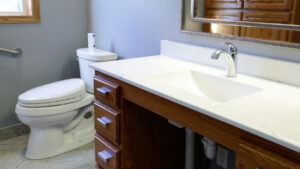6 Signs You May Have a Problem With Your Main Sewer Line
Your property’s plumbing system goes beyond the visible pipes to the main sewer line connecting them. Today, plumbing problems are among the worst issues you would want to deal with as a homeowner because these may involve a hefty amount of your time and money. Often, this involves your main sewer line, resulting in busted pipes and flooded bathrooms.
But determining if the plumbing problem has something to do with your sewer line is not an easy task. Often, problems go unnoticed without professional help. A damaged main sewer line, for instance, is a huge problem that can become too expensive when not addressed immediately.
To help you, Turek’s Plumbing shares six signs you may have a problem with your main sewer line.
1. Nasty odors
A problem-free sewer line is airtight. So if you smell nasty odors coming out from the pipes, this means that there is a leakage in your main sewer line.
2. Sewage backup
Sewage backups are common. However, if this happens each time you flush the toilet, you may have a problem with your sewer line.
Remember that all drains rely on the main sewer line in order to drain properly. So if you notice blockages in your drains, this is a sure-fire sign of a damaged sewer line.
3. Slow Drains
One of the common plumbing issues homeowners encounter is a slow drain. Usually, this can easily be dealt with by drain cleaning or a plunger. But if these efforts don’t work anymore, the issue may already involve your main sewer line.
4. Sewage in your yard
Once your sewer line gets clogged, your home’s wastewater might not make it to the sewer. Instead, it gets out from the sewer clean-out, which then pours sewage into your yard.
A good indication that sewage is leaking out in your yard is when your lawn looks more lush than usual; that’s because sewage is an excellent fertilizer.
5. Mold
Mold is caused by several issues, including a damaged main sewer line. Even a small crack in the line will result in water leaks inside your home, leading to mold growth. Deal with mold immediately because this is detrimental to your health.
6. Foundation issues
Other signs of a damaged main sewer line include foundation issues like foundation settlement, cracks in the foundation slab, and sinkholes. These problems are often caused by leaks that are left unaddressed for a long period of time.
Plumbing problems can disrupt your daily routine. When dealing with these problems, a reputable Fox Valley plumbing company highly recommends calling plumbing experts, regardless of how mild or severe they are. This is the only way to make sure that the problem is fixed properly.
Don’t wait for your main sewer line to be damaged! The moment you notice a plumbing problem inside or outside your home, immediately call a professional Appleton plumber.




